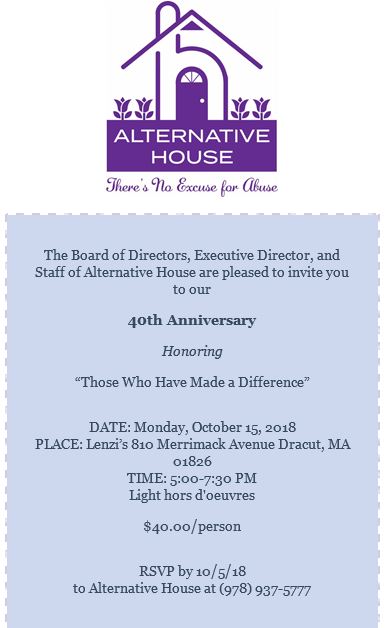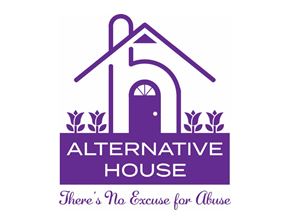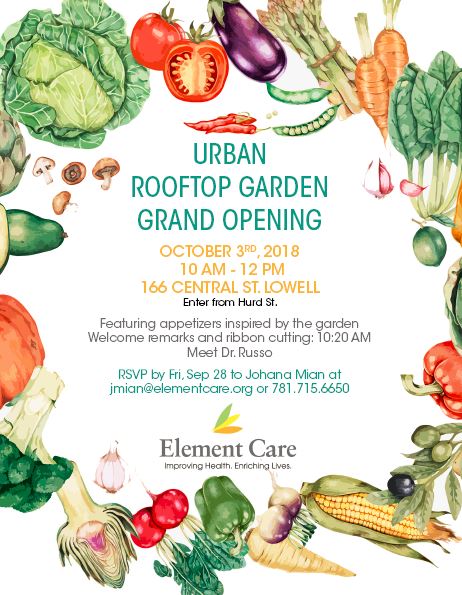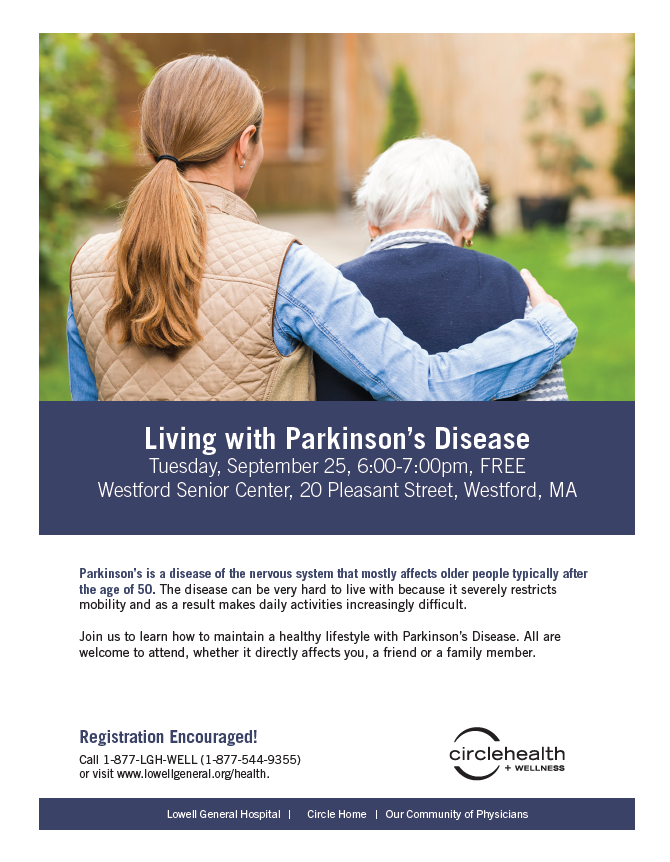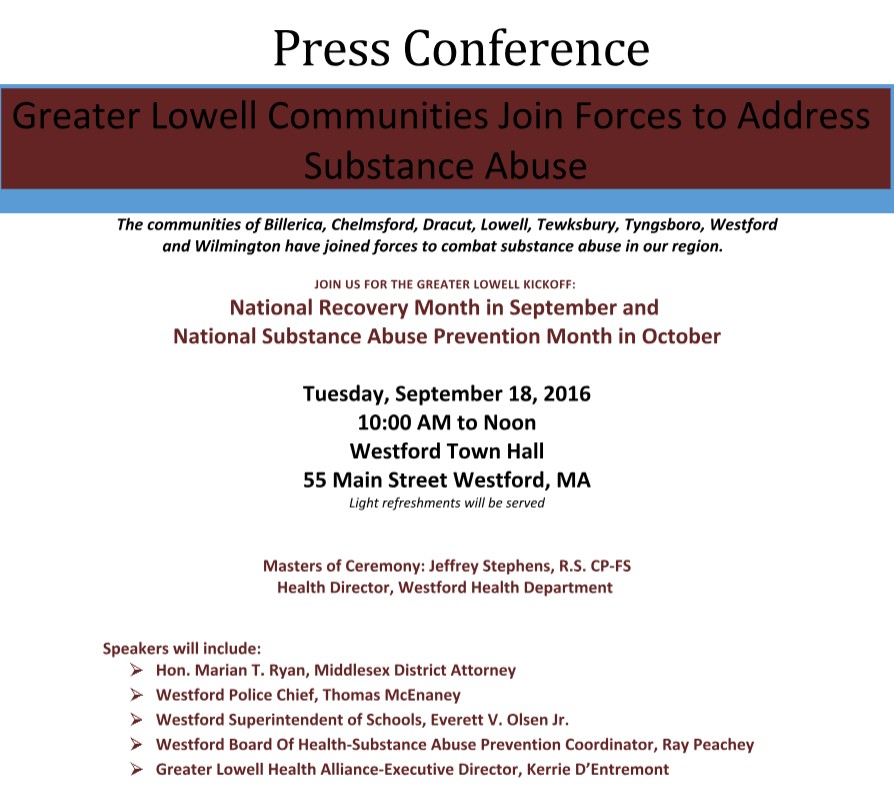Archives: Events
Element Care Urban Rooftop Garden Grand Opening
MPHA’s Annual Conference & Expo
MPHA’s Annual Conference & Expo
For questions about registration, sponsorship or exhibiting at this event please contact Alexa Piacenza at apiacenza@mapublichealth.org or 857.263.7072, x114
Rally Against Hunger
Welcoming Week Lowell
Living with Parkinson’s Disease
Annual National Recovery Month & National SUP Month Press Conference
AFSP Merrimack Valley Out of the Darkness Walk
Event Details
Walk Date: 10/13/2018
Walk Location: dcr Vandenberg Esplanade – Lowell, MA
Check-in/Registration Time: 9:00 am
Walk Begins: 10:00 am
Walk Ends: 12:30 pm
For more information, please contact:
Contact Name: Mary Beth Traynor
Contact Phone: 978-764-8525
Contact Email: gwnana@gmail.com
Welcome to the Out of the Darkness Merrimack Valley Walk
When you walk in the Out of the Darkness Walks, you join the effort with hundreds of thousands of people to raise awareness and funds that allow the American Foundation for Suicide Prevention (AFSP) to invest in new research, create educational programs, advocate for public policy, and support survivors of suicide loss.
Thanks to Walkers and Donors like you, AFSP has been able to set a goal to reduce the annual suicide rate 20% by 2025.
Online registration closes at noon (local time) the Friday before the walk. However, anyone who would like to participate can register in person at the walk from the time check-in begins until the walk starts. Registration is free and open to the public. Walk donations are accepted until December 31st.
Visit here for more information and to register.
LGH Community Engagement Forum
Lowell General Hospital will host a Community Engagement Forum on Friday, Sept. 21, from 8 to 9:30 a.m. in Clark Auditorium at the hospital’s main campus at 295 Varnum Ave, Lowell.
The forum is open to Greater Lowell residents with an interest in helping Lowell General Hospital carry out its Community Benefit mission and improve public health in the communities we serve. The forum will seek to gain valuable insights and feedback from community members and stakeholders as we plan our Community Benefit strategy and programs.
Seating is limited, and registration is required. You can register online at www.lowellgeneral.org/community-engagement-forum. Learn more about Lowell General’s Community Benefit program atwww.lowellgeneral.org/community-benefit.
State of Queer + Transgender People of Color (QTPoC) Affairs
Sponsored by Fenway Health , The Meeting Point
2018 Lesbians+ of Color Forum: State of QPOC Affairs is a future forward, intimate consortium of LGBTQ+ people of color discussing challenges and developing strategies for resolution to mobilize and fortify our community.
In celebration of queer, transgender , and non-binary communities of color pride , this event is curated to ignite community building and foster leadership to affect systemic change in the Commonwealth of Massachusetts. The Forum features advocates for social innovation and dynamic workshops to inform, empower , and mobilize LGBTQ+ communities of color.
For questions regarding media , sponsorship and donations , please contact Shaunya sthomas@locscollective.org
Early Bird/Pre-registration includes Brunch+Lunch |Raffles
Questions or comments , please contact info@locscollective.org
Cis Obsession: Barriers to Care for Trans People of Color
by Eziah Blake
Trans people of color are deeply impacted by the intersections of racism and transphobia. Because of this access to care comes riddled with obstacles. In this session we will explore the cis obsession with trans bodies, its impact beyond “have you had the surgery?” and the intersections of race in these interactions.
#METOO: CENTERING QTPOC SURVIVORS
BY HEMA SARANG-SIEMINSKI
What are the realities for QTPOC survivors of sexual violence? How do current legal, health, and social service systems for survivors promote or silence survivor voices? How and why must movements to end sexual violence center those survivors at the intersections of oppression? What can we learn from the QTPOC organizers working to end sexual violence in our communities? Join us for an interactive discussion unpacking these and many more questions as we envision a future free from sexual violence.
FROM SURVIVING TO THRIVING IN THE WORKPLACE
BY SINDHU REVULURI
In this session, participants will reflect on their goals, their work environment, and alignment of the two. We will discuss strategies for change, benefit from peer coaching about real-life situations, and develop an action plan catered to your needs and experiences. People at all career stages and working in all professional contexts are welcome.
GROWING OUR CREATIVE BIOME
BY AMANDA ZHANG
Why is it important for QTPOC communities to cultivate creative practices in arts, media, STEM, and beyond? What are barriers to unleashing our creative potential and how do we address lack infrastructure and self-sabotaging cultural myths? As I present points of consideration from my own experience, let’s map out the QTPOC creative ecosystem and develop a deeper understanding of the challenges and solutions before us.
The Power of Self-Love to Create the Life of Your Dreams
by Allegretta, Alive
Schedule
11:00 – 11:30
Brunch + Welcome
11:30 – 12:15
The State of Transgender Politics In Massachusetts:
Work In The Present and A Vision For the Future (Keynote Address)
Michelle Tat
12:20 – 12:55
#metoo: Centering QTPOC Survivors
Hema Sarang-Sieminski
1:00 – 1:30
Lunch
1:35 – 2:05
Cis Obsession: Barriers to Care for Trans People of Color
Eziah Blake
2:10 – 2:40
The Power of Self-Love to Create the Life of Your Dreams
Allegretta Alive
2:45 – 3:15
From Surviving to Thriving in the Workplace
Sindhu Revuluri
3:20 – 3:50
Growing Our Creative Biome
Amanda Zhang

